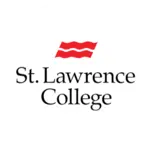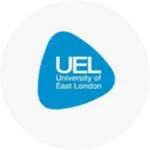Study in Singapore

Overview
A global center for education, Singapore is renowned for its top-notch academic programs, state-of-the-art facilities, and solid industrial ties. It provides a fusion of Eastern and Western learning approaches in a secure, multicultural setting and is home to internationally recognized colleges and campuses. Singapore is a great place for students looking for a top-notch education with international employment chances because of its booming economy and English-speaking educational system.
Why Study in Canada?
World-class education
Canada offers globally recognized degrees and diplomas, with top-ranking universities known for academic excellence and research opportunities.
Safe & welcoming
Canada is known for its low crime rate and inclusive society, creating a safe and friendly environment for international students.
Multicultural society
Canada embraces diversity, with people from all over the world, allowing students to experience various cultures and feel at home.
Research opportunities
Canadian universities emphasize research and innovation, offering students access to cutting-edge facilities and projects across various fields.
Work & PR options
Compared to other popular study destinations, Canada offers quality education at relatively lower tuition fees, making it a cost-effective choice.
Affordable tuition
International students can work part-time during studies and full-time after graduation, with clear pathways to permanent residency through programs like Express Entry.
High living standards
Canada consistently ranks high in quality of life, offering excellent healthcare, infrastructure, and a clean environment for a comfortable student life.
Affordable tuition
From mountains and lakes to forests and coastlines, Canada’s stunning natural beauty offers students endless opportunities for travel and outdoor adventures.
Why Study in Singapore?
Safe & politically stable with a low crime rate
Just a few hours’ flight from India
Vibrant arts and cultural environment
Strong job prospects with many global companies based in Singapore
Multilingual society that supports a student-friendly atmosphere
QUALIFICATIONS OFFERED
- First Professional Degree
- Diploma
- Associate Degrees
- Applied Degrees
- Bachelor’s Degree
- Master’s Degree
- Doctorate
TEST REQUIREMENT
- TOEFL or IELTS scores as a proof of English proficiency. Depending upon the institution, the score requirements may vary between 80-100 for TOEFL and 6.0 – 7.0 bands in IELTS.
- For MBA admission a good score in GMAT is required.
EDUCATION COST
TUITION COST
- Diploma & Advanced Diploma Courses cost range from CAD$11,000 – CAD$13,000 per year depending on the course.*
- Bachelor’s Degrees cost range from CAD$13,000 – CAd$19,000 per year for most under-graduate degrees*
- Post-graduate Degrees cost ranges from CAD$12,000 and ranges up to CAD$22,000*
* Fees given are of informative nature may vary from university to university
TUITION COST
Approximately CAD 10000 for 1st year.
WORK RIGHTS & STAY BACK POST STUDY
TUITION COST
- Part time work right : Off campus 20 hours per week – 40 hours per week during vacation
- No limit for on campus work
- Upto 3 years stay back for ( 2 years study )or equal to the course duration if it is less than 2 years
INTAKE
- January
- May
- September
Universities















Singapore’s education system is internationally renowned for its excellence in education, creativity, and focus on practical learning. It has a merit-based framework and places a high priority on technology, research, and industry relevance. University major admissions normally take place in January, February, April, May, July, August, October, and November, depending on the institution and program. Singapore is the perfect place for international students looking for a top-notch education in Asia because of its cosmopolitan setting and English-taught curriculum.
Since English is the predominant language of instruction at the majority of universities and institutes in Singapore, foreign students must typically demonstrate competency in the language to be admitted to study there. Commonly approved language tests include IELTS, TOEFL, and comparable assessments, with minimum score criteria differing by program and institution. Additionally, certain universities may administer their own tests of English proficiency to applicants. When applying to programs taught in other languages, like Mandarin, students might have to fulfill extra language requirements.
Understanding the Canadian Education System
Canada’s education system provides a varied selection of programs through universities, colleges, and technical institutes, catering to students with a variety of employment goals. An exceptional aspect of the Canadian educational system is its focus on experiential learning, which enables students to obtain practical experience through research partnerships, co-ops, and internships. Additionally, the nation offers overseas students the chance to work both during and after their studies, which lowers the cost of education and focuses on careers. With a reputation for competence, inclusivity, and a solid student support system, Canada remains a popular choice for people seeking a high-quality education and potential employment opportunities.
Canadian universities offer three main intakes for international students: January, May, and September.
Language Requirements
International students need to prove English competence on standardized tests such as the TOEFL or IELTS to study in Canada. Depending on the school, the necessary scores can vary, but generally speaking, they fall between 80 and 100 on the TOEFL and between 6.0 and 7.0 on the IELTS. A competitive GMAT score is frequently needed as part of the admissions process for MBA candidates. Institutions may have particular prerequisites, therefore, students must check the qualifying criteria of their preferred program before applying.
Do you have Questions ?
Find answers to common queries about our services, processes, and policies. If you need further assistance, feel free to reach out.
1. What are the main university intakes in Singapore?
Most universities in Singapore have January, February, April, May, July, August, October, and November, while certain private institutions may provide rolling admissions.
2. What language skills are required to study in Singapore?
Since English is the predominant language of instruction, students are often required to show IELTS or TOEFL scores unless excused by their previous educational medium or a particular institution’s criteria.
3. Is Singapore a safe destination for international students?
Yes, Singapore is known for its low crime rate and stringent legislation, making it one of the safest places in the world for students.
4. How much does it typically cost to live and study in Singapore?
Although tuition rates differ from program to program, living expenses, which include housing, food, transportation, and other personal expenses, typically range between SGD 10,000 to SGD 15,000 annually.
5. Can overseas students work while studying in Singapore?
Yes, overseas learners can work part-time up to 16 hours per week during the academic year and full-time during holidays, as long as they are enrolled in a recognized institution.
6. Are there scholarships available for international students in Singapore?
Of course. Several government and university scholarships are available, such as the Singapore International Graduate Award (SINGA) and institution-specific grants, depending on academic performance.
